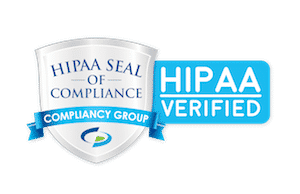
Always remember that your eyes can experience both short-term and long-term eye damage due to excessive sun exposure. Based on a study in the Journal of Exposure Science & Environmental Epidemiology, wearing sunglasses is only one way to protect your eyes from UV rays. You still need other components that can protect your eyes. UV protection should also be constant to ensure the health and safety of your eyes at all hours of the day. If you want to know how to protect your eyes from harmful UV rays, here are the following considerations.
During Cloudy Days
Many people think that they only need to shield their eyes when the sun is intense. The truth is that UV rays can reach your eyes even when the sun hides behind the clouds. Although the day is cloudy, levels of UV rays can still be extremely high. Enjoying the slopes during winter or walking in your local park during the fall can still expose you to 95 percent UV radiation.
When it is cloudy outside and you stay under some shade, your eyes still need UV protection. About 50 percent of UV rays can still reach you because of scattered and reflected light. You can also experience this type of light amplification when you swim in the ocean or your yard pool. Wearing lightly tinted or clear glasses with UV protection can help protect your eyes during cloudy days.
During Intense Hours
Scientific evidence supports that you can expose your eyes to UV rays in the morning, noontime. and afternoon. That is why experts tell people to protect their skin and eyes from UV rays all day. While it’s excellent that your clear eyeglasses have UV protection, this type of eyewear doesn’t protect your eyes from reflected light or glare. You should still wear tinted UV protective sunglasses.
You protect your skin from the sun with clothes and sunblock. Specialists insist that you wear proper UV protective sunglasses and a wide-brimmed hat to protect your eyes. You can also reinforce your eye protection by wearing UV protective contact lenses. Good UV protective lenses can absorb UVA and UVB rays during days with bright sunlight.
Factors
The dose of UV radiation you get each time you step outside depends on the following factors:
Time. From 10 a.m. to 2 p.m., the sun’s UV rays are at their strongest.
Certain medications. Some medications can make your body more sensitive to UV radiation. Examples are birth control pills, tetracycline, tranquilizers, diuretics, and sulfa drugs.
Location. Your exposure to UV rays is higher in areas near the equator. UV exposure decreases as you move away from the equator.
Situation. UV exposure is higher when you are in open spaces with extremely reflective surfaces such as sand and snow.
Altitude. You absorb more UV rays when you’re at higher altitudes.
UV eye protection is vital for eye safety and health. Proper eyewear and additional accessories can help protect your eyes from the effects of UV rays. At Eye Care North, we can help improve your eye health through effective UV protection eyewear. Please call us at 480-781-4446 if you want to ask some questions or set an appointment. Feel free to visit our clinic in Cave Creek, Arizona, for a one-on-one consultation.





































































































































































































































































